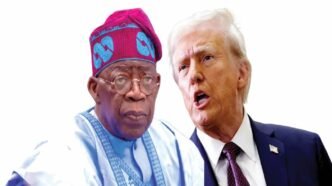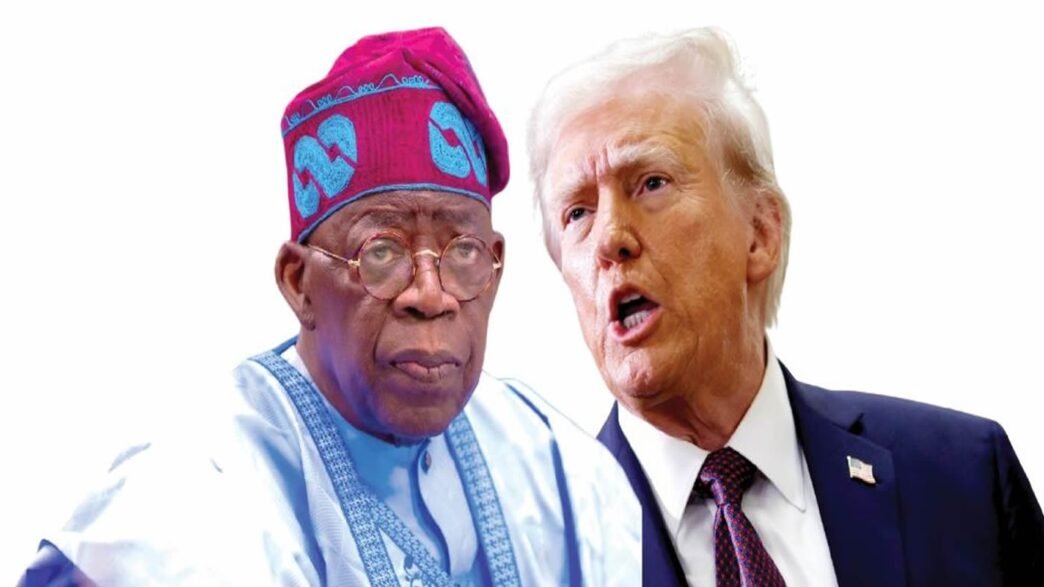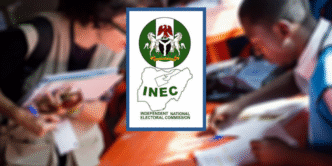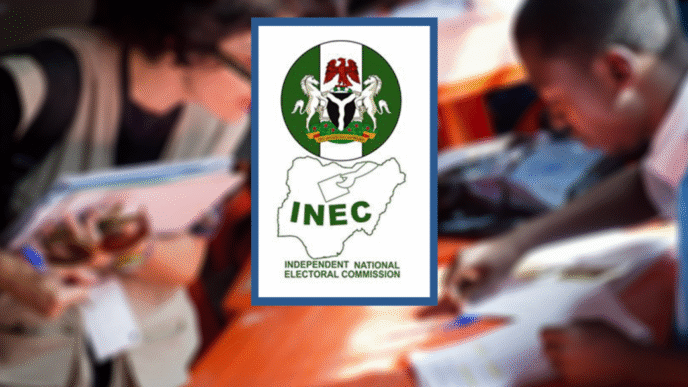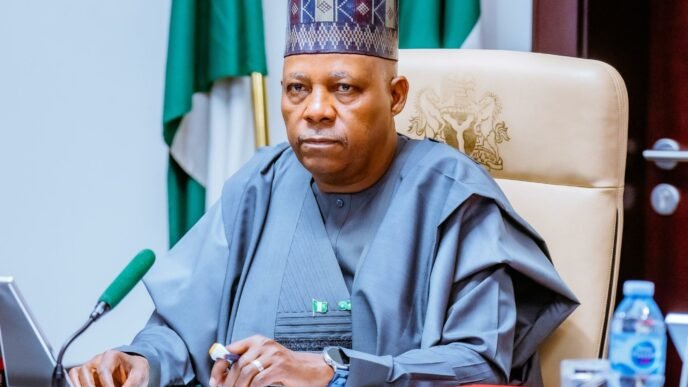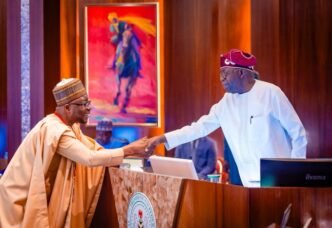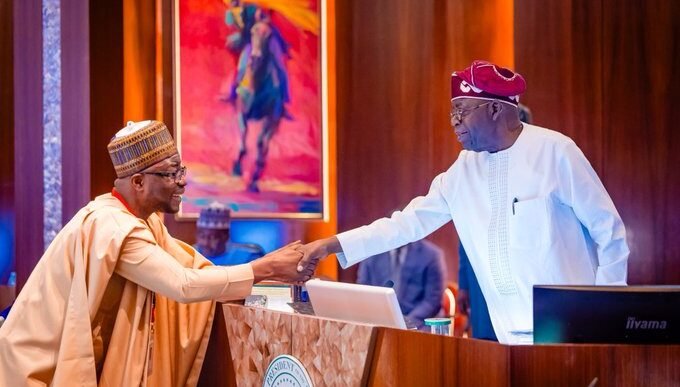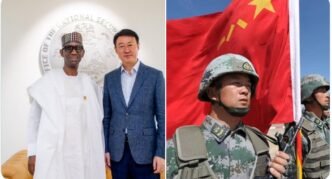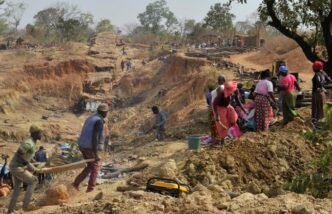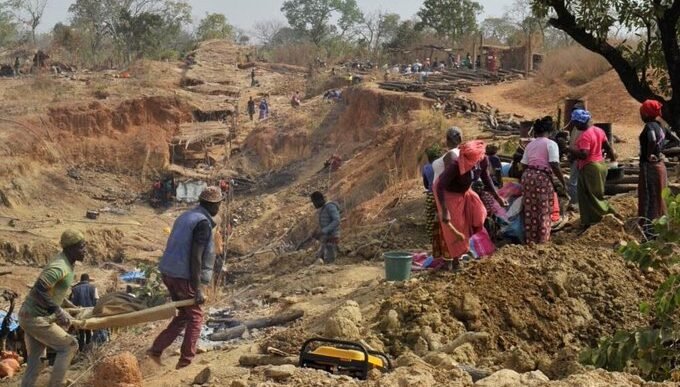Abuja | November 6, 2025
President Bola Ahmed Tinubu has reaffirmed his administration’s unwavering commitment to ending terrorism, insurgency, and all forms of violent extremism across Nigeria, declaring that his government will “pursue peace through strength, intelligence, and international cooperation.”
Speaking at the State House in Abuja on Thursday, Tinubu outlined a new phase in his government’s national security strategy, which includes intensifying military operations, modernizing the armed forces, and deepening engagement with world leaders to curb terrorism financing, arms trafficking, and cross-border insurgency.
“We will not rest until every inch of Nigeria is safe. Terrorism, kidnapping, and violent extremism have no place in our country. We will pursue peace through strength and intelligence,” the President said.
Comprehensive Security Overhaul Underway
President Tinubu revealed that his administration has embarked on a major overhaul of Nigeria’s security architecture. This includes restructuring command operations within the Nigerian Armed Forces, equipping troops with advanced surveillance technology, and boosting coordination between the military, police, and intelligence agencies.
According to the President, the federal government has increased funding for security operations in the North-East, North-West, and North-Central regions, where the military continues to battle Boko Haram, ISWAP, and bandit groups.
Tinubu noted that recent military offensives have resulted in the recovery of several territories once controlled by insurgents, as well as the arrest of top terror financiers and arms smugglers.
“We are achieving results through precision operations and improved intelligence sharing. The days of terrorists finding safe havens in any part of Nigeria are over,” Tinubu declared.
Engaging the World on Counterterrorism
In a major diplomatic move, Tinubu announced plans to deepen international cooperation on security and counterterrorism. He revealed that Nigeria will strengthen ties with countries including the United States, United Kingdom, France, and China, focusing on intelligence exchange, border control, and joint efforts to dismantle terror networks.
“Terrorism is not just a Nigerian problem—it is a global threat. We must work together with our allies to cut off the flow of weapons, funds, and extremist ideology that fuel violence in Africa,” the President said.
Diplomatic sources confirm that Tinubu is expected to hold high-level meetings with world leaders in the coming weeks to discuss regional stability, counterterrorism strategies, and security sector reform.
According to the Ministry of Foreign Affairs, Nigeria’s renewed foreign policy thrust under Tinubu emphasizes “collective security and global partnership” as key pillars of diplomacy.
Military Morale and Welfare Take Priority
The President praised the courage and professionalism of the Nigerian Armed Forces, pledging enhanced welfare and logistics support to improve morale and effectiveness.
Tinubu said the government is investing in modern equipment, armored vehicles, and surveillance drones, as well as improving medical and housing facilities for service members and their families.
“Our troops are making daily sacrifices to defend this nation. We must honor them not only in words but through action—by providing the tools, training, and care they deserve,” he stated.
Military analysts have welcomed the President’s stance, noting that inadequate welfare and outdated equipment have historically undermined Nigeria’s security operations. The administration’s commitment to reform is seen as a vital step toward rebuilding trust between frontline troops and the federal government.
Community Engagement and Local Intelligence
Tinubu also called for stronger cooperation between the federal government, state authorities, and local communities in combating insecurity. He emphasized that community-based intelligence remains a critical tool for preventing insurgent infiltration and resolving conflicts at the grassroots level.
He announced that the newly established National Security and Peace Council (NSPC)—which he chairs—will coordinate intergovernmental efforts to prevent radicalization, manage displaced populations, and promote post-conflict reconstruction.
“Security begins with the people. Every citizen must see themselves as part of this mission. From traditional rulers to local youth groups, our unity is our greatest weapon against terror,” Tinubu said.
Governors of northern states have reportedly been briefed on new frameworks to strengthen vigilante groups and integrate them with official security structures for better information flow and accountability.
International Reactions and Regional Impact
Tinubu’s renewed security pledge has attracted positive responses from Nigeria’s international partners. Western governments and multilateral organizations have expressed readiness to support Nigeria’s counterterrorism efforts through intelligence sharing, military training, and humanitarian assistance.
A senior Western diplomat in Abuja told reporters that Nigeria’s role is pivotal to peace and development in West Africa.
“Nigeria’s stability affects the entire region. The international community is committed to helping the Tinubu administration achieve its security and peace objectives,” the diplomat said.
Regional observers note that Nigeria’s leadership is increasingly important amid rising instability across the Sahel, where military coups, terrorism, and climate pressures have intensified displacement and cross-border crime.
Nigeria’s new regional security initiative—expected to be discussed with ECOWAS partners later this year—aims to strengthen intelligence cooperation and joint border patrols across West Africa.
Economic Stability Through Security
President Tinubu underscored that national security is the foundation for economic growth and sustainable development. He linked his government’s Renewed Hope Agenda to the success of ongoing anti-terrorism campaigns, noting that investor confidence depends heavily on peace and stability.
“Security and prosperity are two sides of the same coin. Without peace, our efforts to grow the economy, attract investment, and create jobs will be undermined. We are determined to secure Nigeria so that our people can thrive,” he said.
The administration’s multi-sectoral approach to national renewal—combining defense, diplomacy, and development—is designed to ensure long-term stability while addressing the root causes of extremism, such as poverty and unemployment.
Looking Ahead: A Vision for a Safer Nigeria
As President Tinubu’s government marks its first full year in office, analysts say his latest vow to “crush terrorism and restore peace” sets a strong tone for Nigeria’s security future.
The administration’s policies—centered on modernization, intelligence-led policing, and international cooperation—are viewed as strategic moves to reposition Nigeria as a stable and influential force on the African continent.
The President concluded his remarks with an assurance that his government would never negotiate away the nation’s sovereignty or the safety of its citizens.
“Nigeria will stand strong. We will confront terror with courage, unity, and purpose. Our mission is clear: to secure every Nigerian home, every market, every school, and every community. That is our solemn duty,” Tinubu declared.

